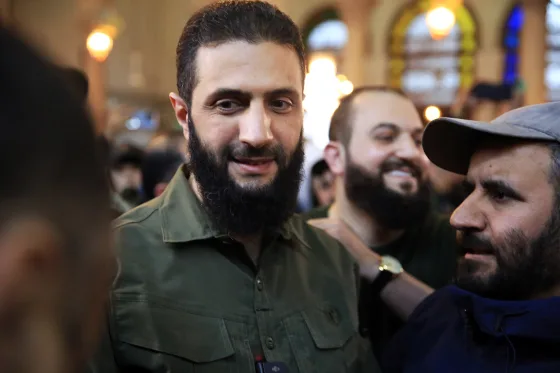Diplomacy Breakthrough: Historic Engagement
In a major diplomatic step, the United States is getting ready to lift the $10 million reward placed on Hayat Tahrir Al-Sham (HTS) leader Abu Mohammad al-Jolani after the group successfully overthrew the Assad government. This move follows the first such diplomatic mission since the regime change, which involved high-level contacts between HTS representatives and U.S. diplomats in Damascus.
U.S.-Syria Diplomacy Talks
Assistant Secretary of State Barbara Leaf, who led the U.S. delegation, described the meetings as “quite good, very productive.” The discussions covered various crucial topics:
- HTS’s dedication to stopping terrorism threats against the United States and its allies
- Equal protection for all groups and the rights of women
- Syria’s future stability and governance
- Status of Americans in custody, such as Majd Kamalmaz and Austin Tice
Diplomacy and Missing Americans Investigation
Roger Carstens, the special presidential envoy for hostage affairs, provided updates on the ongoing search for missing Americans:
- Pay attention to six distinct prison locations that may be connected to Austin Tice.
- organized operations for the FBI to obtain evidence.
- Persistent doubt regarding Tice’s present condition, even though President Biden thinks he is still alive
International Diplomacy Efforts
The U.S. delegation’s visit coincided with diplomatic missions from France, the U.K., and Germany, indicating a broader international shift in approach to Syria. During their stay, U.S. officials:
- Met with civil society members and activists
- Held discussions with the White Helmets
- Conducted a commemorative event for victims of the former regime
- Explored possibilities for regular diplomatic missions to Damascus
Diplomatic Path to Recognition
The Biden administration is considering removing HTS from its terrorist designation list, though several conditions must be met before formal recognition of the new Syrian government. These requirements include:
- Establishing an inclusive government
- Protecting rights of all Syrians, including women and minorities
- Maintaining critical state institutions
- Ensuring Syria doesn’t pose regional threats or harbor terrorist groups
Future of U.S.-Syria Diplomacy
Although operational conditions will require careful consideration, Daniel Rubinstein, senior adviser for the State Department’s Middle East office, voiced hope regarding the continuation of regular diplomatic missions to Damascus. A possible change in Syrian-American relations is indicated by the U.S. government’s involvement, which could have an impact on regional stability and humanitarian assistance.
The developing situation represents a complex balancing act between diplomatic pragmatism and security concerns, as the international community adapts to Syria’s new political landscape under HTS leadership.

